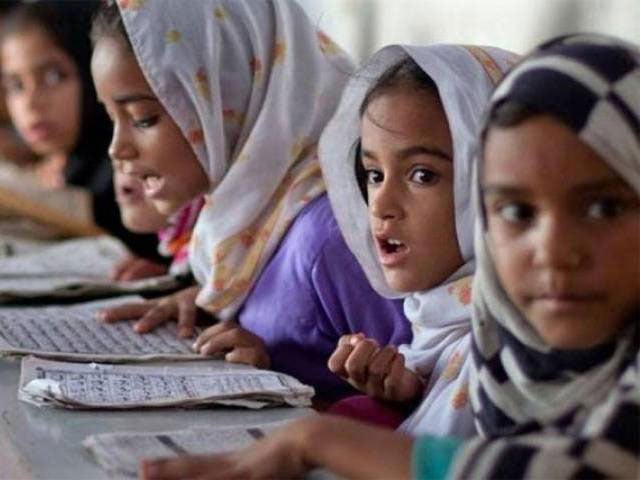
To reduce school dropouts, PIE and DARE-RC are organising a policy discussion on early warning systems.
A Policy Dialogue on “Initiating an Early Warning System (EWS) to Identify Students at Risk of Dropout” was held at the PIE Auditorium by the Pakistan Institute of Education (PIE) and the Data and Research in Education – Research Consortium (DARE-RC), a project funded by UK International Development. The event brought together policymakers, education experts, and development partners to discuss ways to address the pressing issue of school dropouts in Pakistan, where over 26.2 million children between the ages of 5 and 16 are not enrolled in school. The dialogue emphasised the significance of creative, data-driven solutions to increase retention rates and guarantee equitable access to education.
The Early Warning System, a widely accepted framework that identifies kids at danger of dropping out using factors including attendance, academic achievement, and socioeconomic circumstances, was at the centre of the conversations. This makes it possible to implement timely and focused interventions to promote inclusive education and stop dropouts.
A welcome speech and opening remarks kicked off the program, which was followed by a live demonstration of the Sindh Early Warning System model and a multimedia presentation highlighting international triumphs with EWS models. Leading education specialists, such as Drs. Zaigham Qadeer and Sajid, conducted a panel and group discussions that offered a forum for practical suggestions to guide practice and policy.
Participants suggested ways to incorporate the system into national and provincial education strategies and created a customised framework for EWS implementation in Pakistan. Senior government representatives, provincial education departments, and donor organisations like FCDO, the World Bank, UNICEF, JICA, and UNESCO also collaborated as a result of the conversation. Additionally present were representatives from development and non-governmental organisations, who shared their knowledge and perspectives. A framework for piloting EWS programs in certain regions with ambitions to scale them nationally was one of the deliverables.
In his speech, Additional Secretary Hassan Saqlain of the Ministry of Federal Education and Professional Training underlined how crucial early efforts are to lowering school dropout rates. “Resolving the issue of school dropouts is not just about improving education statistics; it’s about ensuring a better future for our children and the prosperity of the country,” he said. We are making significant progress in identifying at-risk students early and giving them the support they require to continue their education through programs like the Early Warning System.
Dr. Shahid Soroya, Director General of PIE, emphasised the urgent need for focused efforts to lower dropout rates. “The foundation of progress is education. We can change Pakistan’s educational system and guarantee that all children have access to high-quality education by implementing data-driven solutions like the Early Warning System,” he said.
“We must take immediate action to create and implement contextually relevant techniques that will guarantee student retention through easily accessible, high-quality education. A strong monitoring of students at risk of dropping out is made possible by an efficient EWS founded on trustworthy and pertinent data. Through a move to multi-sectoral initiatives that identify and address the crippling issues that prevent children from continuing to participate in learning and skill development, it would assist lower dropout rates’, Asfundyar Khan, Deputy Program Director at DARE-RC.
The dedication of PIE, DARE-RC, and their partners to evidence-based policymaking and cross-sector cooperation is demonstrated by this Policy Dialogue. It reaffirms Pakistan’s commitment to attaining Sustainable Development Goal 4, which calls for universal access to high-quality, inclusive education.

Content writer, educationist, teacher, researcher, social media manager, and a SEO manager from lahore. She has been working as a freelance academic and non-academic writer for more than 20 years now. She has a passion to learn new things and has a knack for writing and she combines both things to produce write ups she pours her heart out in.

